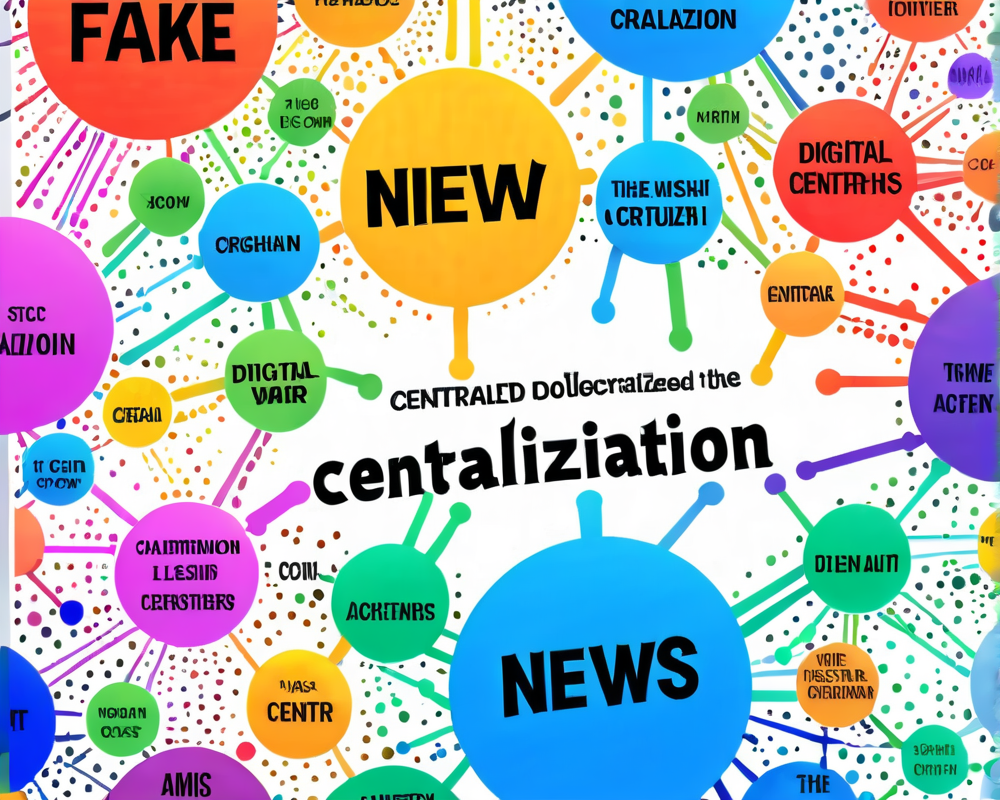The Battle Lines Are Drawn
At ELEV8CON in Las Vegas, a showdown is brewing. This time, it’s not about who has the finest buffet but rather the future of our online existence. In a world saturated by misinformation, Alex Mashinsky, the founder and CEO of Celsius Network, is ringing the alarm bell. With companies like Facebook and Google at the helm, he argues that the internet has succumbed to a “distorted reality” where the truth gets lost in the chaos. It’s a digital clash between centralized and decentralized networks, with implications that might just affect how we understand the world.
Fake News: The Profit Machine
Ever noticed how fake news spreads like wildfire while the truth seems to be hanging out in the corner? Mashinsky puts it bluntly: the rise of centralized social media has led to a surge in fake news, creating confusion on critical issues. Think of it this way: if sensational headlines ship you straight to the comment section, ad revenue follows close behind. As he quipped,
“If such lies bring engagement (which is immediately converted into huge profits) then they deserve to be pushed and promoted by the world’s best algorithms.”
It’s a money-making frenzy that leaves democracy—and our sanity—in tatters.
Blockchain: The Hero We Didn’t Know We Needed
Mashinsky offered a glimmer of hope in the shadow of misinformation. The answer? A blockchain-based platform capable of verifying user identities and data authenticity. Imagine a world where your grandma’s Facebook posts could be backed up by ironclad data. He mentioned Block.one’s Voice as a trailblazer, a decentralized platform promising to restore trust online. Scheduled to launch its beta version on Valentine’s Day of 2020, it might just be the love story we need.
Challenges Ahead for Decentralized Platforms
But wait! Our hero still has to gather a fan base. Mashinsky acknowledged that while platforms like Voice aim to protect users from the pitfalls of fake news, capturing user interest is a hefty task. “We are just waiting for 7 billion people to discover them,” Mashinsky said. Cue the crickets. Until then, we’re stuck in the centralized hamster wheel, endlessly scrolling, and subconsciously feeding the giants their profits.
Rethinking Blockchain Economics
During his keynote, Mashinsky dazzled the audience with a slide titled “Blockchain Economics,” complete with an E=MC2 spin: E=Ethereum, M=Members, C=Consensus.
He explained that for Ethereum to hold value, it needs both members and a consensus. A fair point—but can we get people off their couches long enough to participate?
The Future: Centralized or Decentralized?
As Mashinsky wrapped it up, he called to action: “If we stop this addiction, Facebook will lose their power faster than you can say ‘algorithm.’” Imagine a world where platforms respect user privacy and data. Who doesn’t want that? As he drew parallels to the old phone companies that charged exorbitant fees, he left us pondering whether our online future would be a renaissance or a rerun.















+ There are no comments
Add yours